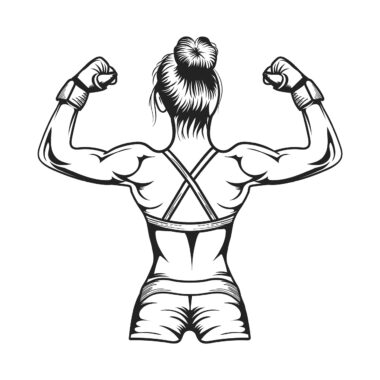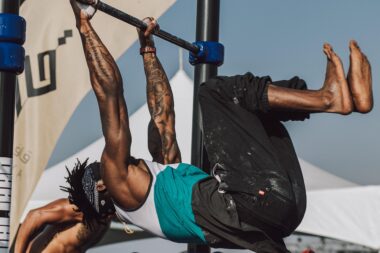Nutrition Tips from Leading Bodybuilding Experts
Nutritional strategies play a crucial role in achieving bodybuilding goals. According to experts, macronutrient balance is essential. Bodybuilders should focus on obtaining an adequate amount of protein, carbohydrates, and fats in their diet. Experts recommend that protein intake be roughly 1.2 to 2.2 grams per kilogram of body weight, depending on the intensity of training. Additionally, incorporating whole food sources such as lean meats, fish, eggs, legumes, nuts, seeds, and dairy ensures you get high biological value protein. Carbohydrates are vital for muscle energy, so complex carbs like whole grains, fruits, and vegetables are effective choices for sustaining performance. Healthy fats like avocados, olive oil, and fatty fish are also important for optimal hormone function and overall health. Meal timing and frequency can further enhance muscle recovery and growth. Many experts suggest having a pre-workout meal containing protein and carbs to fuel workouts, while a post-workout meal with similar content helps replenish stores and kickstarts recovery. A well-balanced diet that fuels the body aids both performance and muscle growth, ultimately contributing to bodybuilding success.
Hydration is another critical factor emphasized by leading bodybuilding experts. Adequate fluid intake supports various physiological processes, including nutrient transport, temperature regulation, and joint lubrication. Bodybuilders are encouraged to drink water consistently throughout the day, targeting at least three to four liters daily, depending on activity levels and environmental factors. Additionally, consuming electrolyte-rich fluids or sports drinks during intense training sessions can help to maintain electrolyte balance and prevent dehydration. Expert opinions suggest that hydration practices should be tailored to individual needs, as body composition and metabolism can influence fluid requirements. Monitoring urine color can be a practical guide; pale yellow indicates proper hydration while darker shades suggest a need for increasing fluid intake. Moreover, consuming foods with high water content, such as fruits and vegetables, contributes to daily fluid requirements. Nutritionists often recommend scheduling hydration breaks during workouts, especially during longer sessions. By prioritizing hydration, bodybuilders can enhance endurance, performance outcomes, and recovery, ultimately supporting their overall training program. Engaging in personalized hydration strategies ensures optimal physical health, which is vital in any serious bodybuilding endeavor.
Supplementation for Bodybuilding
Apart from a balanced diet, many bodybuilding experts advocate for supplementation to fill nutritional gaps. Supplements can provide concentrated nutrients that may be difficult to obtain through food alone. For instance, whey protein, creatine, and branched-chain amino acids (BCAAs) are popular among athletes to boost muscle protein synthesis, strength, and recovery. Whey protein, in particular, is favored for its quick absorption and high-quality amino acid profile. Creatine is also recognized for its ability to enhance performance and increase muscle mass when used consistently. Furthermore, BCAAs can reduce muscle soreness and fatigue, making them beneficial for intensive training periods. However, experts stress that supplements should complement, not replace, a nutritious diet. It’s crucial to consider quality when choosing supplements, as not all products on the market are created equal. Certified third-party tested brands give consumers confidence in their choices. Additionally, personal goals contribute to which supplements may be suitable; therefore, consulting with a healthcare professional or registered dietitian is wise before beginning any regimen. Responsible supplementation tailored to individual needs can enhance your bodybuilding results over time.
Importance of Whole Foods
Leading bodybuilding experts emphasize that whole foods should comprise the foundational elements of any athlete’s nutrition plan. Whole foods are minimally processed and rich in nutrients that contribute to overall health, recovery, and muscle growth. Experts assert that focusing on variety is vital; including a broad range of fruits, vegetables, whole grains, lean proteins, and healthy fats ensures a diverse intake of vitamins, minerals, and antioxidants essential for performance. Nutrient-dense choices help support energy levels and promote recovery after challenging workouts. Additionally, consuming unprocessed foods can help improve digestion and gut health. Many nutritionists highlight the importance of preparing meals at home, as this allows bodybuilders to control their ingredients and portions. Home-cooked meals tend to be healthier and provide an opportunity to experiment with flavors and textures. Meal prepping is also recommended to save time and make healthier choices during busy weeks. As a part of their routine, bodybuilders should strive to prioritize whole-food sources and integrate them into their daily meals while engaging with their culinary creativity. Overall, a commitment to whole foods sets a solid foundation for sustainable success.
Periodic adjustments to nutritional plans are necessary for bodybuilders as training loads and goals evolve. Consulting with experts can provide valuable insights into when and how these changes should occur. For instance, as muscle mass increases, protein needs may also rise, warranting modifications in dietary protein sources or servings. Similarly, caloric intake may need to fluctuate depending on whether the focus is on bulking or cutting phases. A clear understanding of energy balance is needed; bodybuilders need to be mindful of the total energy expenditure to achieve desired results. Tracking progress through measurements, body composition assessments, or performance logs enables athletes to make informed decisions regarding nutrition. Additionally, staying adaptable ensures the nutrition plan aligns with physical goals and personal preferences. Bodybuilders should also consider psychological factors; in addition to nutritional changes, maintaining a positive mindset is essential for success. Seeking support from coaches, fellow athletes, or dietitians provides accountability and encouragement, enhancing overall experience. Adapting nutrition ensures ongoing improvement while fostering an overall passion for bodybuilding and health.
Eating for Recovery
Recovery is an integral part of any bodybuilding program, so nutrition during this phase is key. Experts recommend focusing on nutrient timing by consuming meals rich in protein and carbohydrates soon after workouts. These nutrients work synergistically to replenish glycogen stores and stimulate muscle repair and growth. It’s often suggested that bodybuilders consume a well-balanced meal within 30 to 60 minutes post-exercise. Options might include a protein shake with fruits, a sandwich made with lean meat, or a grain bowl topped with vegetables and protein sources. Furthermore, hydration, as previously mentioned, supports recovery efforts, so drinking water or electrolyte beverages after training sessions is equally important. Anti-inflammatory foods like berries, turmeric, ginger, and fatty fish may further aid in muscle recovery, reducing soreness and inflammation. Some experts also recommend integrating recovery-focused supplements, like glutamine, to optimize this process. However, balanced meals and whole foods should still form the cornerstone of recovery nutrition. Ultimately, giving the body the essential nutrients it needs allows bodybuilders to return to training stronger and more resilient, thereby enhancing performance in subsequent sessions.
In conclusion, nutrition forms the backbone of successful bodybuilding, directed by the insights of leading experts. Adopting a tailored approach, where individuals consider their unique needs, preferences, and training regimes, is crucial. From focusing on macronutrients and prioritizing whole foods to engaging in strategic supplementation and adaptive meal planning, bodybuilders can harness nutrition to their advantage. Keeping hydration at the forefront ensures optimal physical performance, while nutrient timing emphasizes recovery and muscle growth. Engaging in a support network of coaches and nutritionists further enriches this journey, ensuring ongoing accountability and motivation throughout the training process. As bodybuilders embrace a holistic perspective on their nutritional roadmap, they set themselves up for success not only in achieving immediate fitness goals but also in cultivating a lasting, healthy lifestyle. The combination of informed nutritional choices helps bodybuilders sustain their passion for the sport, consistently pushing boundaries, and achieving new milestones. Ultimately, knowledge truly is power in bodybuilding, as understanding and implementing these expert nutrition tips can unlock the potential for outstanding performance and personal growth.





